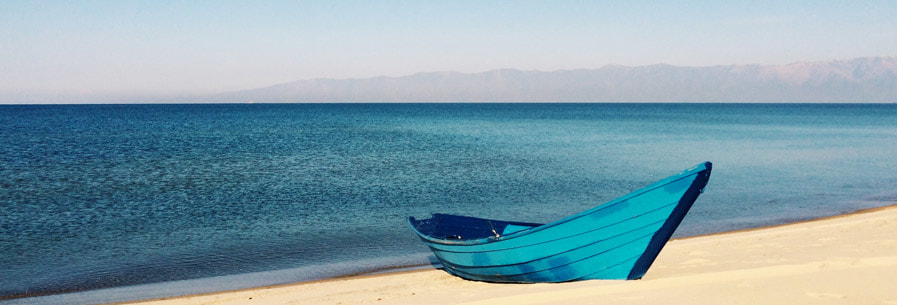|
Asking the uninitiated whether they have heard of Mindfulness can be very tricky, as I know to my cost! “I’m not into that kind of airy-fairy stuff”, or “It’s a bit weird” are just a couple of the responses I’ve had, although underneath the statement is often an admission that the person doesn’t know anything about it. It’s so easy, it seems to me, to fall into the trap of closing one’s mind to anything that lies outside of our personal experience, which is a shame, especially because mindfulness practices pre-date our modern culture and have, over centuries, been proven to significantly enhance wellbeing.
So, what is Mindfulness? Well, to put it simply, mindfulness is the awareness of thoughts, feelings and bodily sensations experienced within the present moment, merely observing without judgement about whether they are right or wrong. Mindfulness is an art and something to be learnt. Its aim is to free the mind and body from its tendency to get stuck in negative emotional patterns and behaviours. When we are mindful we can be more aware of our reality and the choices we are able to make, rather than getting stuck in the problems of yesterday or our assumptions about tomorrow. If we begin with the mantra that says “All I have is now” then the possibilities for life right now can be limitless. In a nutshell, mindful living is the awareness that emerges as we pay attention to what is happening in our mind, our body and our deeper emotional self. If we are fully present, we have the capacity to shift into “being” mode and respond in a way that allows us to let go of judgement, both of ourselves and others and to live more peacefully, within ourselves and with others. To quote the great philosopher Aristotle: “We are what we repeatedly do”, sums up our human condition and, often, we live in a way that is the polar opposite of the mindful experience and so we remain shackled to those attitudes and behaviours that do little to sustain health. What we know is that struggling to keep up with the pressures and demands of the modern world can lead us in to a vicious circle of anxiety and stress leaving us, at least, feeling exhausted and unhappy with our lot. It can be easy enough to seek out strategies for coping that have the potential to compromise our health. “What do you do to switch off at night when you can’t sleep?”, I might ask my client and it’s not unusual to hear the response: “I have a beer, or three to relax me”. What some people don’t realise is that alcohol is both a stimulant and a depressant and, if taken in excess, is known to have a number of health implications. How much easier then, to equip ourselves with strategies that have been shown to have no detrimental impact on heath in clinical trials. Developing mindfulness practices have been shown to reduce the negative physical and psychological effects of anxiety, stress and depression, although one doesn’t need to be struggling with these issues to experience the benefits of it. Indeed, it is more likely that by using these practices we can minimise the potential for these things to escalate in the first place. This blog is not the place for me to teach the practice of mindfulness, although much has been written on the subject. If what you have read here has kindled an interest and you are keen to explore this fascinating subject in more depth, then perhaps this is a good place to begin. There are many reputable mindfulness courses available and I would urge you to explore what is available in your area but be sure to access only those courses that meet the standards for mindfulness practice. If at this stage you would prefer a taster, then a Smart App. may well suit your needs and I recommend that you visit your App. Store for further information. I often recommend the App: “Headspace” to my clients, which can be downloaded for free and offers you the opportunity to begin the journey of mindful living. Another resource I am more than happy to pin my flag to is a book by Professor Mark William and Dr Danny Penman entitled: “Mindfulness, a practical guide to Finding Peace In A Frantic World” … don’t forget to pick up the copy that includes a free CD of guided meditations. The book is an eight week mindfulness programme and, once familiar with the exercises on the CD, they are particularly useful in any situation, whether dealing with the stresses of a busy classroom or struggling to get those forty winks! If that is not enough, do look out for forthcoming events here at JR Corporate Health where, along with mindfulness workshops, we look forward to rolling out our innovative programmes designed to support the whole of your life journey! Namaste. Jan Rogers. JR Corporate Health
0 Comments
|
BlogJR Corporate Health blogs cover topics such as management support, supervision, psychological support, critical incident support and wellbeing in the workplace. Archives
July 2021
Categories
All
|
JR Corporate HealthConnectt |
Services |
Legal Info |
© Copyright 2023 JR Corporate Health Limited | JR Corporate Health Limited is registered in England, number 11264109, and whose registered office is Bow Cottage, Selworthy Green, Selworthy, Minehead, Somerset TA24 8TP.
Email [email protected] Mobile 07785 977771
Website Design & Development by Creative Remedy
Email [email protected] Mobile 07785 977771
Website Design & Development by Creative Remedy


 RSS Feed
RSS Feed